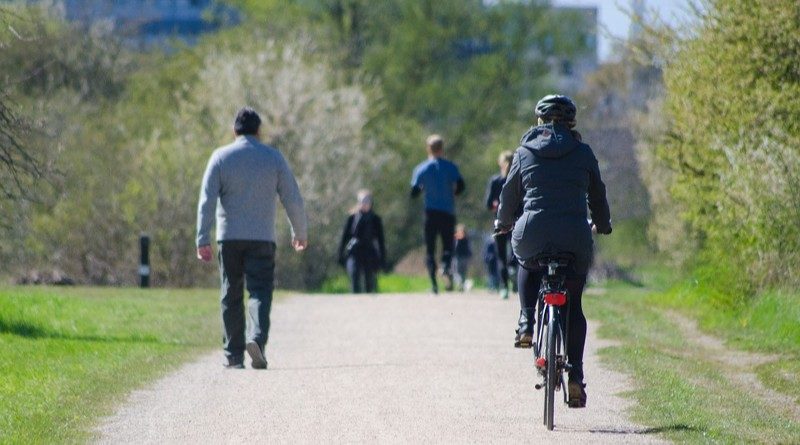Sustrans calls for more ’20-minute neighbourhoods’ in response to Government’s ‘green revolution’ Ten Point Plan
Yesterday saw the UK Government announce its Ten Point Plan for a green industrial revolution. The ten point plan sets out the approach government will take to build back better, support green jobs, and accelerate our path to net zero.
The Ten point plan includes:
- advancing offshore wind
- driving the growth of low carbon hydrogen
- delivering new and advanced nuclear power
- accelerating the shift to zero emission vehicles
- green public transport, cycling and walking
- ‘jet zero’ and green ships
- greener buildings
- investing in carbon capture, usage and storage
- protecting our natural environment
- green finance and innovation
The ten point plan will mobilise £12 billion of government investment, and potentially 3 times as much from the private sector, to create and support up to 250,000 green jobs.
The government has also announced over £5 billion to support a green recovery. This plan mobilises £12 billion – and potentially more than three times as much from the private sector – to place green jobs at the heart of the economic revival.
Responding to the Ten Point Plan published yesterday, in particular, making cycling and walking more attractive ways to travel and investing in zero-emission public transport of the future, Rachel White, Head of Public Affairs at Sustrans said:
“The Plan confirms the date of the end to the sale of conventional petrol and diesel vehicles has been brought forward to 2030 – although hybrids will be on sale until 2035. Sustrans welcomes this as part of a long term strategy to tackle the climate crisis. However, evidence shows that even with an end to the sale of the most polluting vehicles in 2030 we will still need a 20% – 60% reduction in traffic by 2030 to meet climate targets. In other words we need fewer, not just cleaner, car trips given the number of polluting vehicles that will remain on the road long after 2030 and that a significant amount of air pollution comes from brake and tyre wear.
“The best way to reduce vehicle trips is to make it easier for people to walk, cycle and use public transport. Whilst the Ten Point Plan commits to this, the Government needs to build on the £2bn promised for walking and cycling over the course of the next four years to meet their own targets of doubling cycling levels compared to 2016 levels by 2025 and ensuring half of all journeys in towns and cities are cycled or walked by 2030.
“Moreover, the Ten Point Plan aims to make our homes and public buildings more energy efficient, but we need to make sure that journeys to and from home are greener, too. To make this easier for people, the Government must ensure that changes to the planning system deliver fewer developments where residents are dependent on their car for short trips, and deliver more 20-Minute Neighbourhoods, where every day services can be reached easily and safely in a twenty minute return walking trip.”
This comes after the The UK Government announced a new £2 million pound programme to get more students cycling or walking to school in September.



